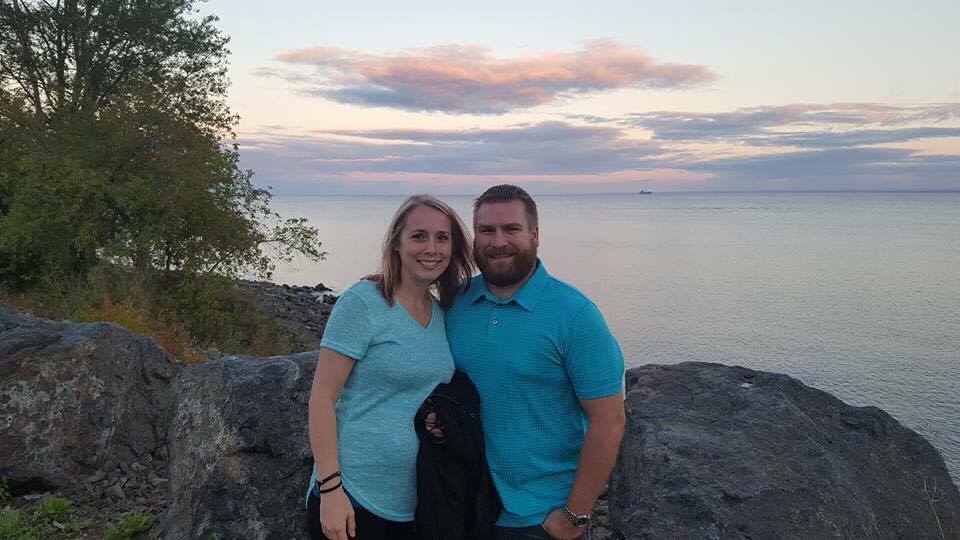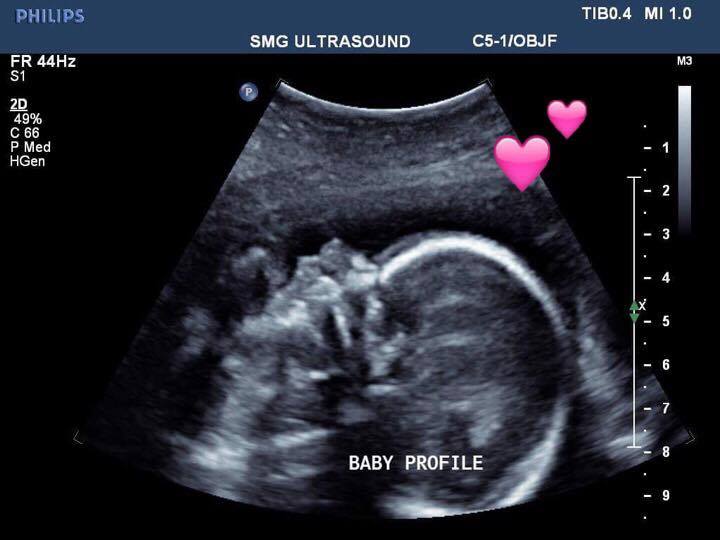Jenna Zimmer is 23 weeks into her seventh pregnancy. She hasn’t let herself get too excited, though. Her last six ended in miscarriages, making for a roller-coaster past couple years.

The 32-year-old Wisconsin woman had been trying to have a baby with her husband Kyle for a year when she found out she was finally pregnant for the first time in January 2014.
“We heard a heartbeat at six weeks and assumed everything would be smooth sailing after that,” she recalled in light of Pregnancy and Infant Loss Awareness Day, marked every year on Oct. 15.
The two excitedly told family they were expecting — only to be shattered a month later at their next appointment, when they learned their baby had stopped growing.
READ MORE: How long should you wait to tell others you’re expecting?
Even though Zimmer saw the motionless figure on the ultrasound, it took a while for it to “click.”
“It was absolutely devastating. I’ve never been so depressed and heartbroken.”
She had a “d&c” (dilate and curettage) procedure, which scrapes the fetus off the uterine lining under heavy sedation or oral medication. Zimmer says it was physically painless, but emotionally, the hardest thing she’s gone through.
When she got pregnant for the second time that July and saw a heartbeat again, she thought: “We couldn’t possibly miscarry twice.”
Two weeks later, the heartbeat was gone. Afraid of getting her uterus scraped twice (as it can sometimes lead to scar tissue formation called Asherman’s Syndrome), she opted for a miscarriage-inducing medication (Cytotec) the second time around.
“It was a horrible experience. Blood came literally gushing out of me. I bled a ton, then it would stop, then it would start again. Worse than any period … This went on for over six weeks.”
Every subsequent positive pregnancy test left her “terrified.”
“Driving to ultrasound appointments was the absolute worst.”
Her third pregnancy turned out to be a “blighted ovum,” which is when the embryo doesn’t develop. It looked like a “dark, empty circle” on the ultrasound screen.
The next three were “chemical pregnancies” — super early losses — within six months of each other. Zimmer explains the only reason she knew she was pregnant was because she took the tests early. They were positive, then became negative and were followed by a heavy period a few days later.
Every time it happened, she’d wonder “why?”
“It’s very lonely,” Zimmer said.
She and her husband had two nephews born around the time the losses began. They eventually asked relatives to tell them in private if they were expecting. The surprise announcements became too much to bear.
Potential reasons for miscarriage
The Zimmers eventually learned their miscarriages were due to genetics. Basically, parts of Kyle’s chromosomes 14 and 19 would swap places during conception. So there’d either be too much or too little genetic information coming from those chromosomes. That would result in an unbalanced arrangement of chromosomes that isn’t compatible with life.
What also could have contributed to their losses, Zimmer said, was a growth on her uterus that’s since been removed. She also had ovarian cysts and was previously diagnosed with Polycystic ovarian syndrome (PCOS), a condition that’s been linked to a higher risk of pregnancy loss.
READ MORE: Morning sickness is linked to a lower risk of miscarriage, study suggests
Up to a quarter of pregnancies are thought to end in a miscarriage, according to the American Pregnancy Association. A woman may not even know she’s pregnant before she loses the baby. Others will never find out why they miscarried because no cause can be found.
Aside from age, risk factors for miscarriages have been said to include: obesity, smoking, excessive drinking of caffeine and alcohol, as well as drug use.
The culprit could also be an abnormality in the womb or cervix, hormonal imbalances, infections, or antibodies in the blood that prevent the embryo from properly embedding.
WATCH: Can long-term smoking contribute to miscarriages?
In the vast majority of cases, a miscarriage happens within the first three months of a pregnancy that’s not viable. This is why couples are advised to wait until then before sharing their pregnancy news widely.
After the 12-week mark, the risk of a stillbirth is about three in 1,000.
It’s what Zimmer now fears most, even though her 21-week scan a couple weeks ago showed a healthy baby girl. She credits that to just getting “lucky in the genetics department” this time.
She recently bought her first-ever pregnancy purchase: a three-pack of onesies.
‘It’s a reality of life’
“It’s horrible to be in constant worry about it, but one day at a time,” she said.
The pair briefly saw a counsellor and Zimmer joined support groups on Facebook and Reddit, all of which have helped her heal from the trauma.
Her advice to other couples who suffer a loss is to talk about it.
READ MORE: ‘Every parent’s worst nightmare’: Breaking the silence
“If you talk about it openly, you may find that many people will share their story of loss with you as well. It happens more than anyone thinks and nobody talks about it. It’s not taboo.
“It’s a reality of life and it should be discussed.”



Comments